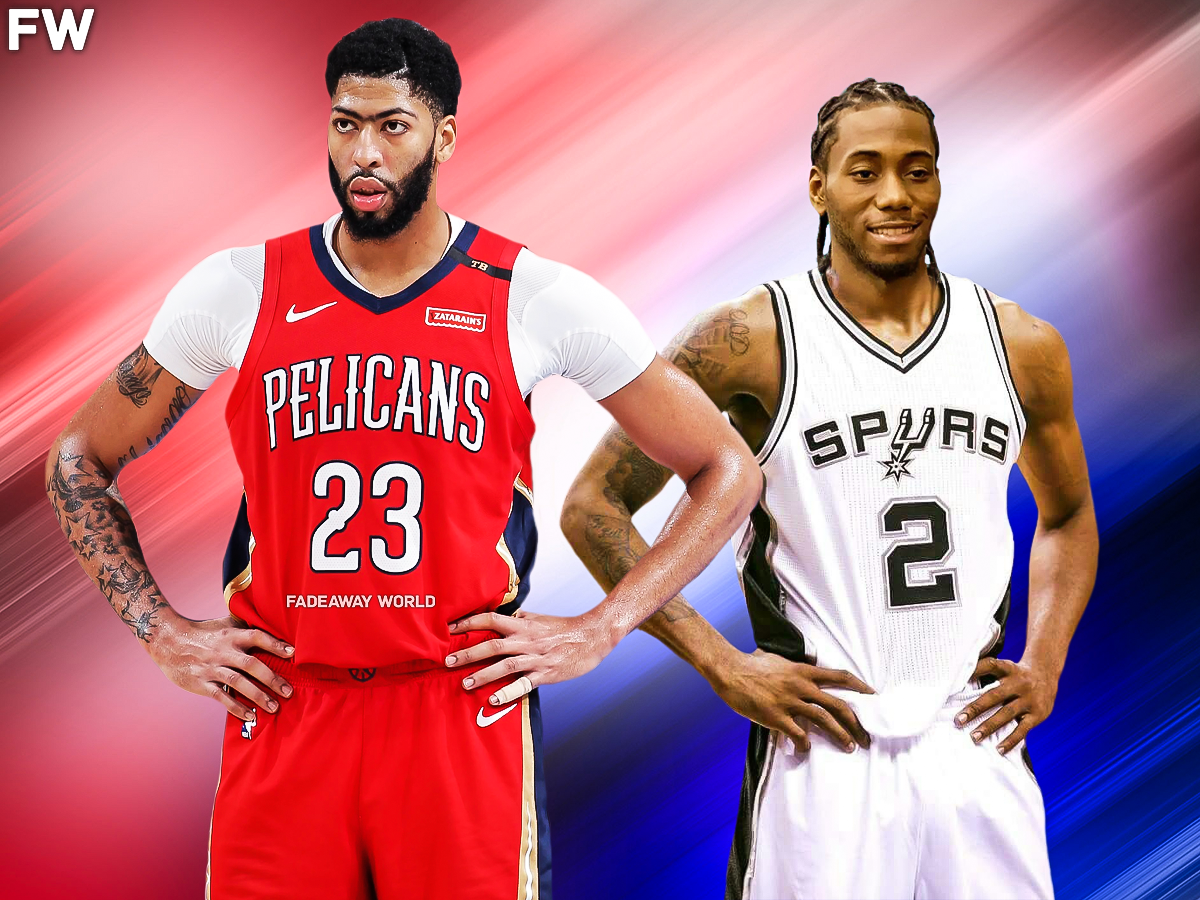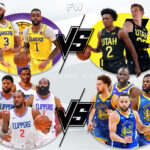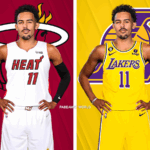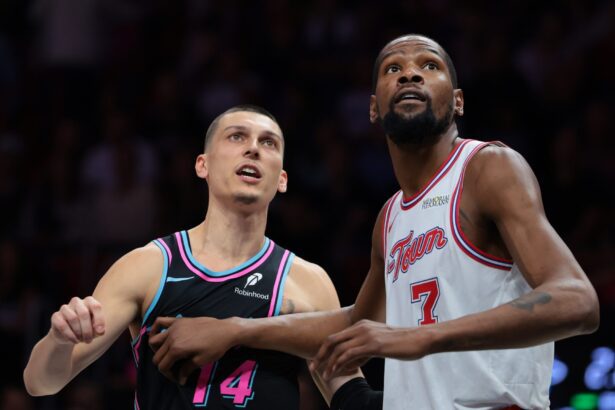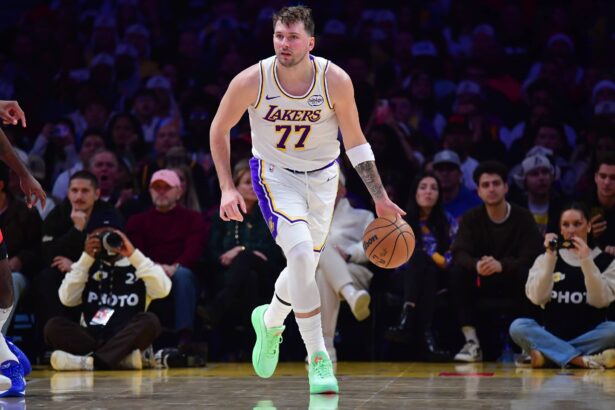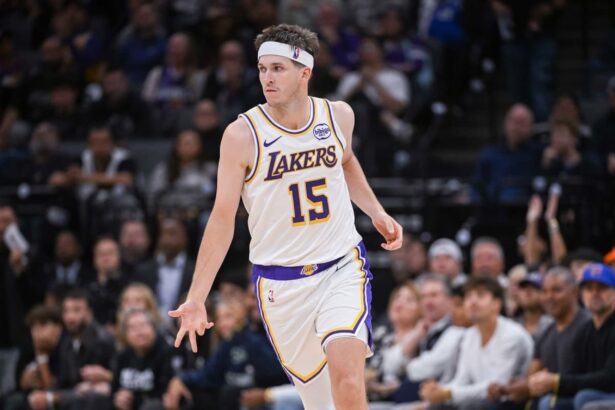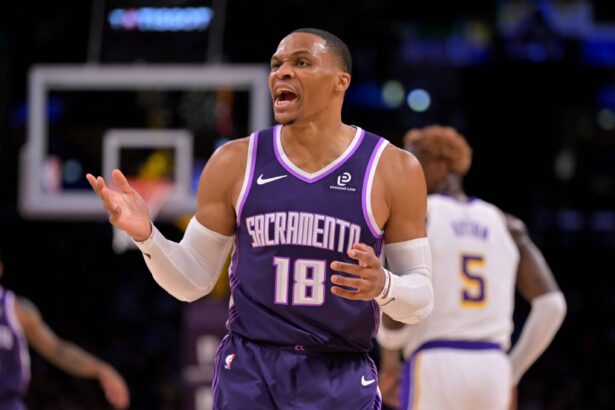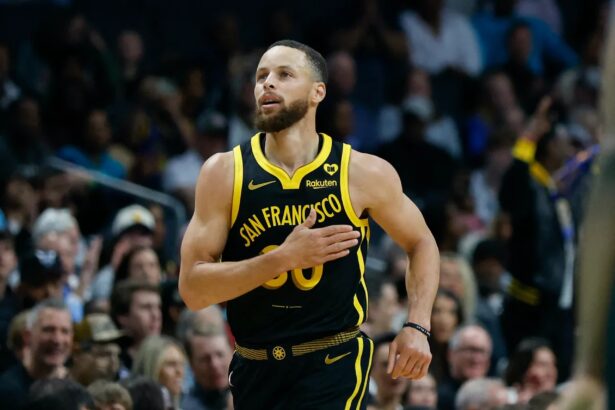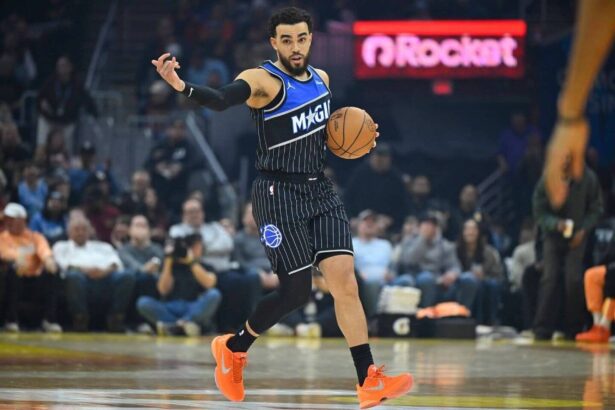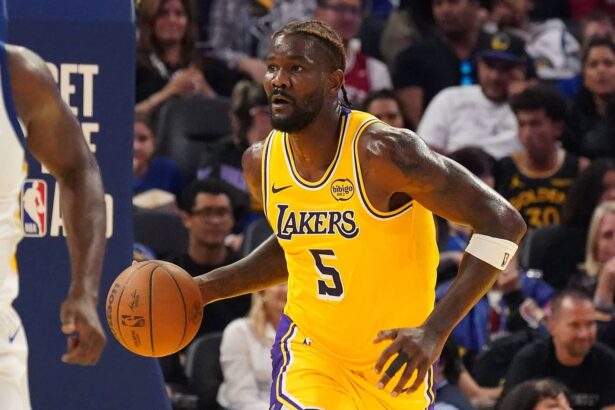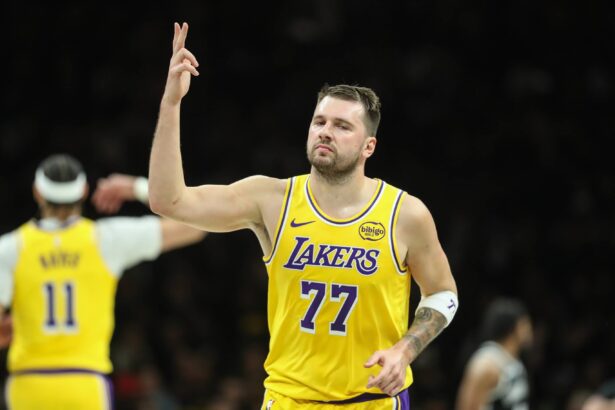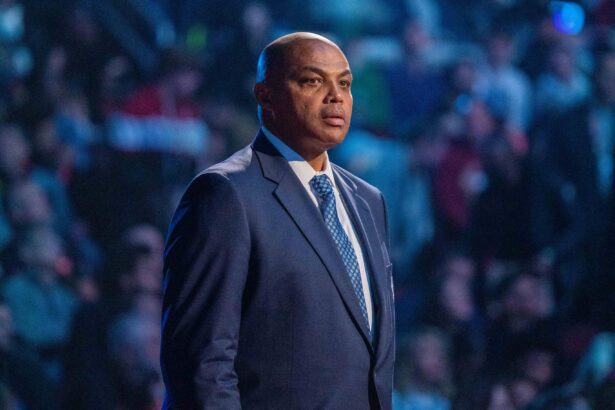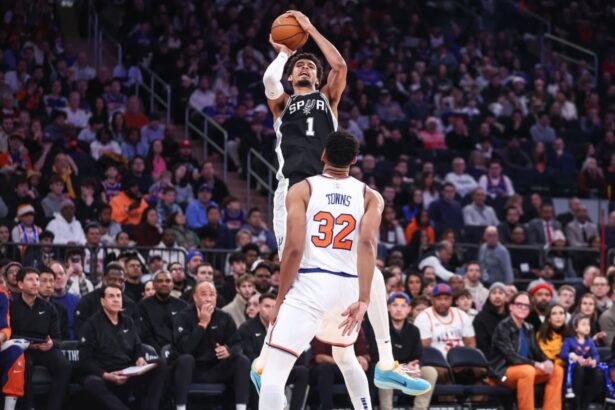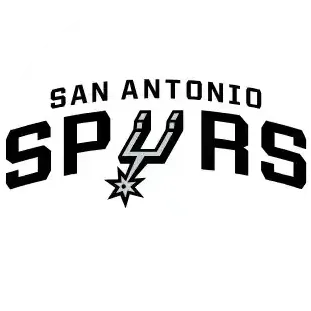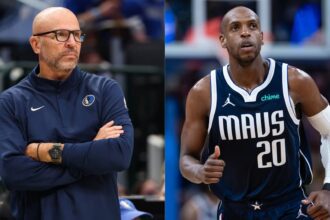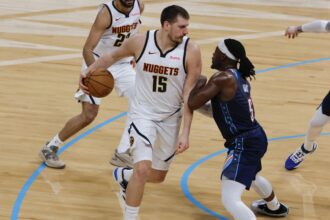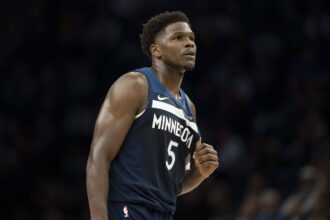Opinions are split over the NBA’s new stipulation that requires players to play at least 65 games in a season in order to be eligible to receive any individual awards. While professional basketball players truly love playing basketball, there has been an issue with many of the elite stars failing to suit up for games due to load management and that has to change.
Regardless of how opinions differ, the course of NBA history might be altered because of the 65-game rule and it seems the league is sticking to it. Injury-prone stars such as Joel Embiid and Kawhi Leonard might not win a major individual trophy again, and Embiid is specifically seemingly out of the running for this season’s MVP trophy because he could miss significant time due to injury.
It is time to go back through history and name the major changes we would have seen in major award winners if the 65-game rule had been implemented earlier, starting from the 1968 season when an 82-game schedule was first introduced. It is important to note that shortened seasons due to lockouts (1999, 2012) or the COVID-19 shortened seasons (2020, 2021) will be considered with new thresholds considered for those years.
MVP Award
1977-78 Winner: Bill Walton (58 Games) – 18.9 PPG, 13.2 RPG, 5.0 APG, 1.0 SPG, 2.5 BPG
1977-78 New Winner: George Gervin (82 Games) – 27.2 PPG, 5.1 RPG, 3.7 APG, 1.7 SPG, 1.3 BPG
Despite sustaining a broken foot in February and missing most of the regular season, Bill Walton managed to secure the MVP Award for a full 82-game season, a feat unmatched by any other player. In the playoffs, he made a comeback but required a pain-killing injection for Game 2 against the Seattle SuperSonics.
A subsequent X-ray revealed a broken ankle, leading to his absence for the rest of the postseason and ultimately marking the end of his time with the Blazers. If a new eligibility threshold had been in place, George Gervin, who finished second with 80.5 points compared to Walton’s 96, would have been the recipient of his first MVP award.
Gervin’s impressive stats for the San Antonio Spurs included averages of 27.2 points, 5.1 rebounds, and 3.7 assists, contributing significantly to their 52-30 record. It was also the first season in which Gervin won the scoring title. While already a Hall of Famer, an MVP title would have added further luster to Gervin’s legacy beyond being a four-time scoring champion.
Defensive Player Of The Year
2017-18 Winner: Rudy Gobert (56 Games) – 13.5 PPG, 10.7 RPG, 1.4 APG, 0.8 SPG, 2.3 BPG
2017-18 New Winner: Anthony Davis (75 Games) – 28.1 PPG, 11.1 RPG, 2.3 APG, 1.5 SPG, 2.6 BPG
The 2018 DPOY outcome is intriguing as neither the winner, Rudy Gobert, nor the runner-up, Joel Embiid, met the 65-game threshold. Gobert played 56 games due to ankle and knee injuries, each sidelining him for over 10. On the other hand, Embiid was on course until a late March facial bone fracture ended his regular season prematurely despite posting 11.0 rebounds, 0.6 steals, and 1.8 blocks per game.
Consequently, Anthony Davis, who finished third in the voting, would have claimed the award for that season. Would that have prevented the criticism that Davis has continued to face the past few seasons? Possibly, but there is no doubt the big man’s legacy would have taken a massive leap when looking back at his time with the New Orleans Pelicans as it is often a forgotten stint.
2014-15 Winner: Kawhi Leonard (64 Games) – 16.5 PPG, 7.2 RPG, 2.5 APG, 2.3 SPG, 0.8 BPG
2014-15 New Winner: Draymond Green (79 Games) – 11.7 PPG, 8.2 RPG, 3.7 APG, 1.6 SPG, 1.3 BPG
Kawhi Leonard’s 2015 DPOY win over Draymond Green, with a narrow margin, could be a potential source of controversy. Missing the cutoff by just one game, particularly due to a significant injury like Leonard’s torn ligament in his hand, adds drama to the situation.
It raises concerns about whether there should be a minutes requirement in each game to prevent scenarios where a player, injured or not, briefly checks in and then exits, potentially impacting the fairness of the award selection process. Regardless, Leonard was the best defender in the NBA but that title would have gone to Green who would have two Defensive Player Of The Year trophies to his name right now.
Rookie Of The Year
2020-21 Winner: LaMelo Ball (51 Games) – 15.7 PPG, 5.9 RPG, 6.1 APG, 1.6 SPG, 0.4 BPG
2020-21 New Winner: Anthony Edwards (72 Games) – 19.3 PPG, 4.7 RPG, 2.9 APG, 1.1 SPG, 0.5 BPG
In the more recent case of LaMelo Ball in 2021, he secured his honor in a COVID-shortened season, playing 51 games. However, this would have fallen short of the adjusted threshold, requiring him to participate in at least 57 games in a regular 82-game season. Ball’s wrist injury in the second half of the season kept him sidelined for 21 games.
With the new guidelines in place, the Rookie of the Year award would have shifted to Anthony Edwards, who played in all 72 games during that season. Edwards was right behind Ball in the Rookie of the Year race, averaging more PPG than Ball but not quite the floor general and on-court leader. It would have been interesting to see the budding superstar have a major trophy in his cabinet by now.
2011-12 Winner: Kyrie Irving (51 Games) – 18.5 PPG, 3.7 RPG, 5.4 APG, 1.1 SPG, 0.4 BPG
2011-12 New Winner: Kawhi Leonard (64 Games) – 7.9 PPG, 5.1 RPG, 1.1 APG, 1.3 SPG, 0.4 BPG
In the lockout-shortened 66-game season, Kyrie Irving played 51 games, falling short of the hypothetical equivalent threshold of 65 games in an 82-game season. Under this adjusted criterion, Irving would have needed to participate in at least 52 games to qualify. This creates an intriguing scenario given that he was contending with a sprained shoulder towards the end of the season.
Even if Irving was the best rookie during the season (18.5 PPG), the award would have gone to Kawhi Leonard since Ricky Rubio (2nd place) and Kenneth Faried (3rd place) both did not meet the 52-game threshold either.
2006-07 Winner: Brandon Roy (57 Games) – 16.8 PPG, 4.4 RPG, 4.0 APG, 1.2 SPG, 0.2 BPG
2006-07 New Winner: Andrea Bargnani (65 Games) – 11.6 PPG, 3.9 RPG, 0.8 APG, 0.5 SPG, 0.8 BPG
Brandon Roy faced a setback in the number of games played during a season, managing only 57 due to a knee impingement. Unfortunately, this injury foreshadowed the challenges that would later define his career. However, the timing of the injury, occurring early in the season, played a role in shaping the narrative.
As Roy demonstrated improvement towards the end of the campaign, any concerns about the award outcome were mitigated. In the end, Roy secured all but one of the first-place votes, and we all thought a superstar would soon become apparent. If the 65-game rule was applied, Roy would have missed too many games which meant Italian forward and often criticized Andrea Bargnani would have won Rookie of the Year by posing 11.6 points and 3.9 rebounds per game for the Toronto Raptors.
1985-86 Winner: Patrick Ewing (50 Games) – 20.0 PPG, 9.0 RPG, 2.0 APG, 1.1 SPG, 2.1 BPG
1985-86 New Winner: Xavier McDaniel (82 Games) – 17.1 PPG, 8.0 RPG, 2.4 APG, 1.2 SPG, 0.5 BPG
Another notable example in the Rookie of the Year category dates back to 1986 when Patrick Ewing claimed the award despite participating in only 50 games. A knee injury necessitating surgery limited his playing time despite being widely regarded as the standout rookie of the season.
Ewing actually averaged close to his career numbers (21.0 PPG, 9.8 RPG) in his rookie campaign, a testament to how great he was so early. Xavier McDaniel never had a shot for Rookie of the Year in 1986, but had the rule been applied, he would have won it to add to his resume that includes one All-Star selection.
All-NBA First Team Selections
2020-21 Selection: Kawhi Leonard (52 Games)
2020-21 New Selection: Julius Randle
2013-14 Selection: Chris Paul (62 Games)
2013-14 New Selection: Stephen Curry
2005-06 Selection: Shaquille O’Neal (59 Games)
2005-06 New Selection: Ben Wallace
1997-98 Selection: Shaquille O’Neal (59 Games)
1997-98 New Selection: David Robinson
1984-85 Selection: Bernard King (55 Games)
1984-85 New Selection: Terry Cummings
1977-78 Selection: Bill Walton (58 Games)
1977-78 New Selection: Kareem Abdul-Jabbar
1975-76 Selection: Pete Maravich (58 Games)
1975-76 New Selection: Randy Smith
Even if not a major individual trophy, making the All-NBA First Team is an honorable achievement that is reserved for only the greatest players in a particular season. Amazingly, there would have been seven instances of a rule change affecting NBA history in this regard.
In the COVID-shortened season of 2021, Kawhi Leonard fell short of the equivalent threshold of 57 games due to a foot injury, missing 11 out of the last 18 games. Under the new rules, Julius Randle would have been the surprising recipient of the First Team nod, posting 24.1 points and 10.2 rebounds in his first All-Star season.
In 2014, Chris Paul’s inclusion in the First Team with 62 games played sparked some controversy. A mid-season shoulder sprain limited his appearances, raising questions about whether genuine long-term injuries should impact All-NBA selections and Stephen Curry would have made First Team by posting 24.0 points per game in his first All-Star season.
Shaquille O’Neal appears twice on this list – in 1998 and 2006. Abdominal injuries, a wrist fracture in 1998, and a sprained ankle in 2006 didn’t hinder his First Team selections, but he would have been ineligible under the new criteria, losing two All-NBA nods in favor of Ben Wallace and David Robinson. It would not have affected Shaq’s legacy, anyway.
In 1985, Bernard King’s exceptional performance in just 55 games, despite a sprained ankle and a career-altering ACL tear, secured him a rightful spot on the First Team, showcasing his dynamic scoring ability. Bill Walton, as mentioned earlier in the MVP section, faced a similar situation in 1978 and earned a spot on the All-NBA First Team despite a significant number of missed games.
Pete Maravich, in his second season with the Jazz in 1975, overcame various injuries in 62 games to make the First Team. However, the league’s dilution due to the ABA’s presence might have influenced the landscape during that period and the late superstar would have missed out on one of his four total All-NBA Team appearances.
Thank you for being a valued reader of Fadeaway World. If you liked this article, please consider following us on Google News. We really appreciate your support.

